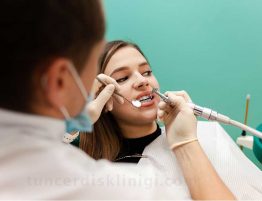
Tooth Abscess
A tooth abscess is a dental condition that can cause excruciating pain and potentially serious complications if left untreated. Understanding the causes, recognizing the symptoms, and seeking timely treatment are crucial for managing this dental issue effectively. In this comprehensive guide, we will delve into the world of tooth abscesses, exploring their causes, symptoms, and the various treatment options available. Additionally, we will touch upon the importance of dental hygiene in preventing tooth abscesses.
Understanding Tooth Abscess
A tooth abscess is a pus-filled pocket that forms in the tooth’s root or the surrounding tissues due to a bacterial infection. This infection can occur for various reasons and can lead to severe pain, swelling, and, in some cases, systemic health problems.
Causes of Tooth Abscess
Several factors can contribute to the development of a tooth abscess:
- Dental Decay: One of the most common causes is untreated dental cavities or dental decay. When decay penetrates the tooth’s enamel and reaches the pulp, it can lead to infection and abscess formation.
- Gum Disease: Advanced gum disease, also known as periodontitis, can cause the gums to recede and create pockets where bacteria can accumulate, leading to abscess formation.
- Trauma: Tooth injuries or trauma that expose the pulp can provide an entry point for bacteria, increasing the risk of abscesses.
- Dental Procedures: In rare cases, dental procedures like root canals or crowns can lead to complications, resulting in abscesses.
- Weakened Immune System: Individuals with weakened immune systems are more susceptible to dental infections and abscesses.
Symptoms of Tooth Abscess
Recognizing the symptoms of a tooth abscess is crucial for prompt treatment. Common signs and symptoms include:
- Severe Toothache: A persistent, throbbing toothache that can radiate to the jaw, ear, or neck.
- Sensitivity to Hot and Cold: Increased sensitivity to hot or cold temperatures, especially when consuming food or beverages.
- Swelling: Swelling of the face, cheek, or jaw, often accompanied by redness.
- Fever: In some cases, a fever may develop as the body tries to fight off the infection.
- Pus Drainage: If the abscess ruptures, there may be a foul-tasting discharge of pus in the mouth.
- Difficulty Swallowing or Breathing: Severe abscesses can cause difficulty swallowing or breathing and may require immediate medical attention.
Complications of Untreated Tooth Abscess
Neglecting a tooth abscess can have serious consequences, including:
- Spread of Infection: The infection can spread to other parts of the body, leading to systemic health issues.
- Bone Loss: Abscesses can erode the bone around the affected tooth.
- Tooth Loss: In severe cases, the affected tooth may need to be extracted.
- Sinus or Brain Infections: Rarely, untreated abscesses can lead to sinus or brain infections.
Treatment Options for Tooth Abscess
The treatment of a tooth abscess typically involves addressing the infection and alleviating pain. Common treatment options include:
- Drainage: The abscess may be drained to remove pus and reduce pressure.
- Root Canal Therapy: This procedure involves removing the infected pulp and cleaning and sealing the tooth’s interior.
- Antibiotics: Prescription antibiotics are used to control and eliminate the infection.
- Pain Management: Over-the-counter or prescription pain relievers can help manage the pain.
- Tooth Extraction: In cases where the tooth is severely damaged, extraction may be necessary.
- Incision and Drainage: For larger abscesses, an incision may be made to drain the pus.
Preventing Tooth Abscess
Prevention is always better than treatment. To reduce the risk of tooth abscesses:
- Maintain Good Oral Hygiene: Brush your teeth at least twice a day, floss daily, and visit your dentist regularly for check-ups and cleanings.
- Limit Sugary Foods: Reduce your consumption of sugary and acidic foods and beverages.
- Use Fluoride Products: Use fluoride toothpaste and mouthwash to strengthen your tooth enamel.
- Wear Mouthguards: If you play contact sports, wear a mouthguard to protect your teeth from trauma.









Write a comment: